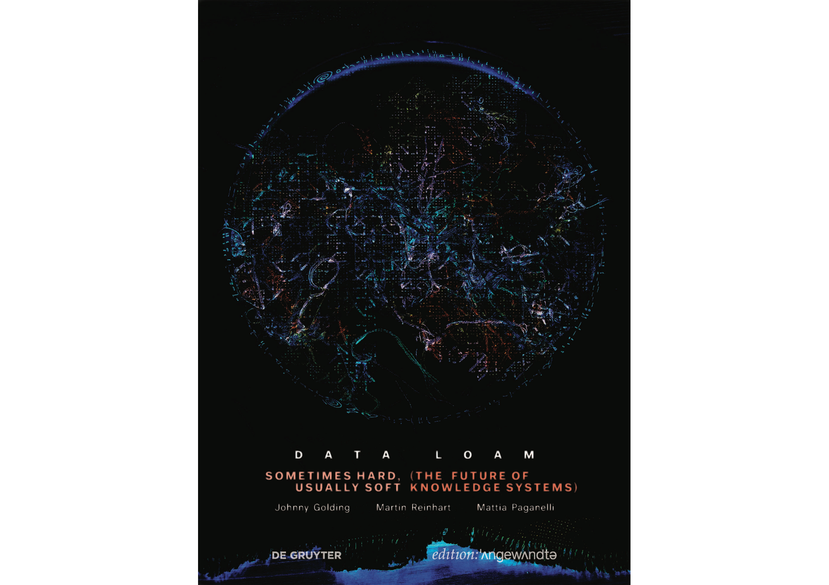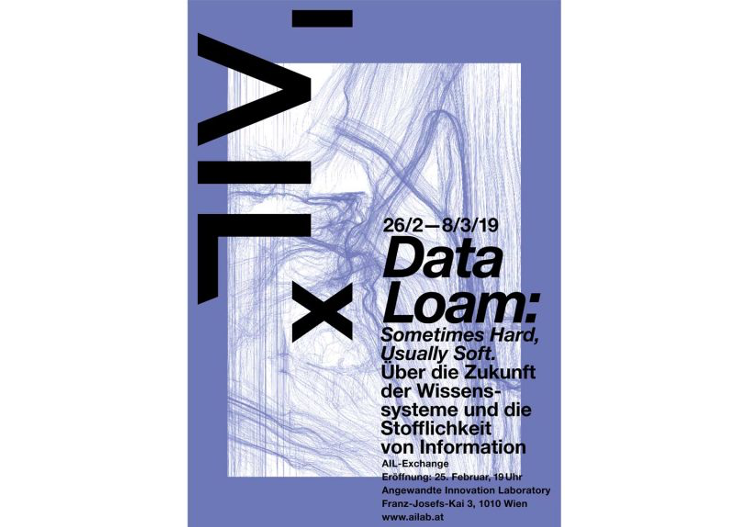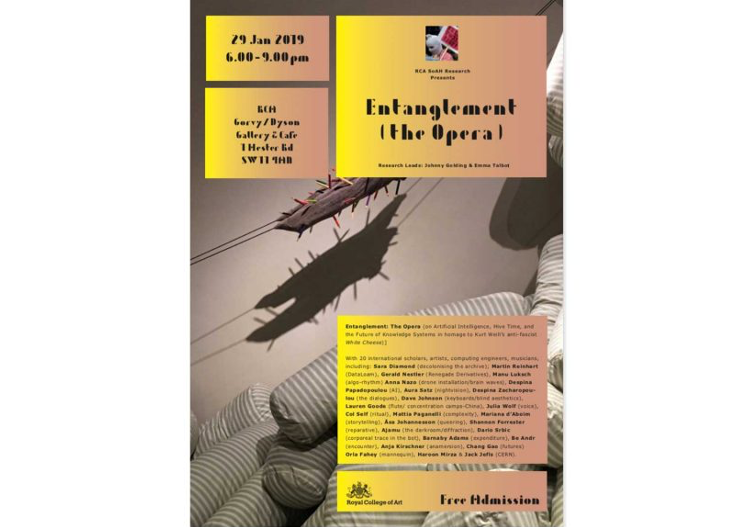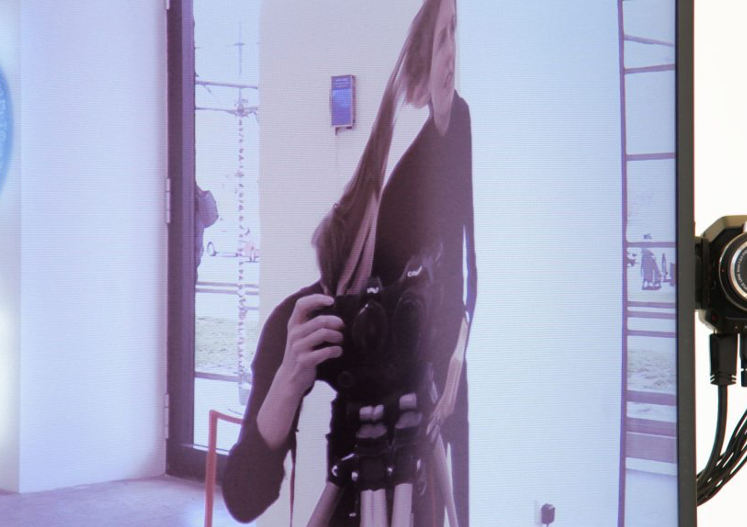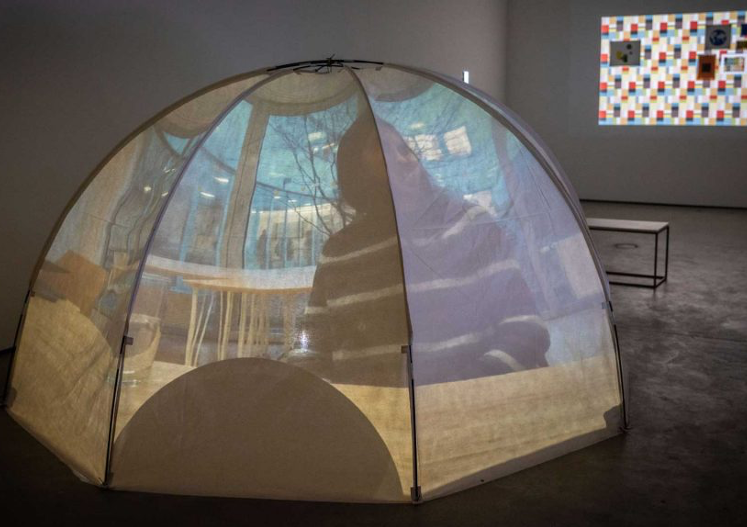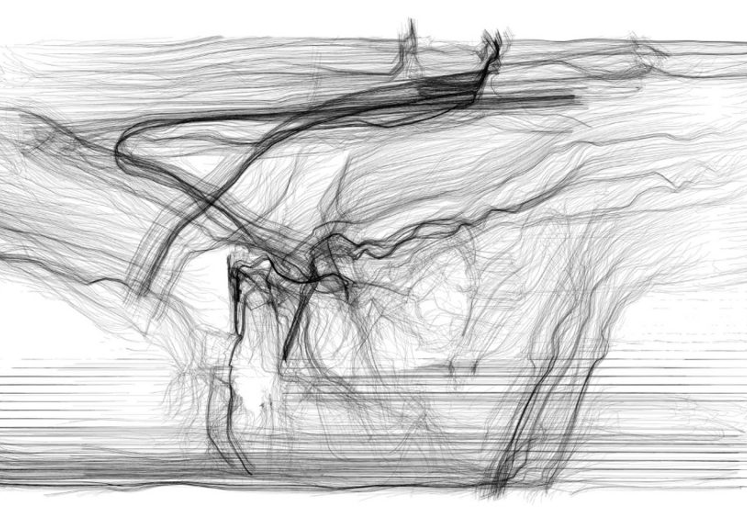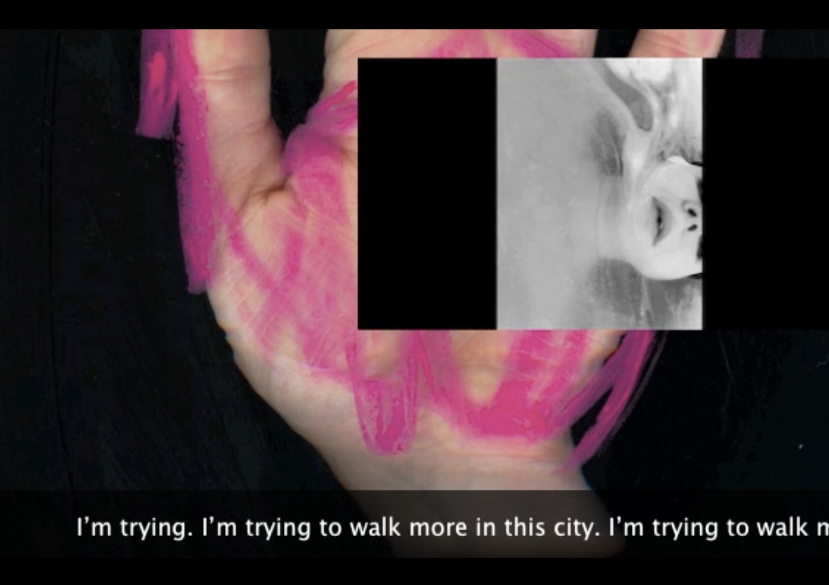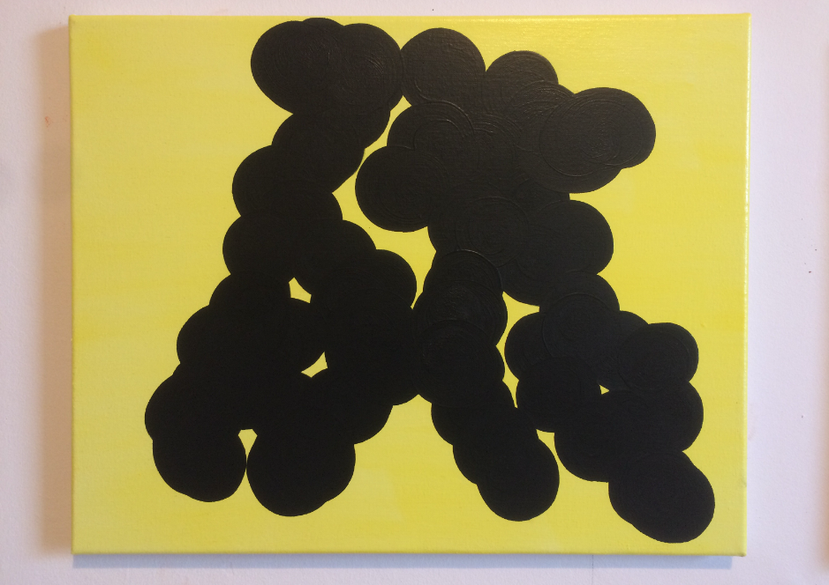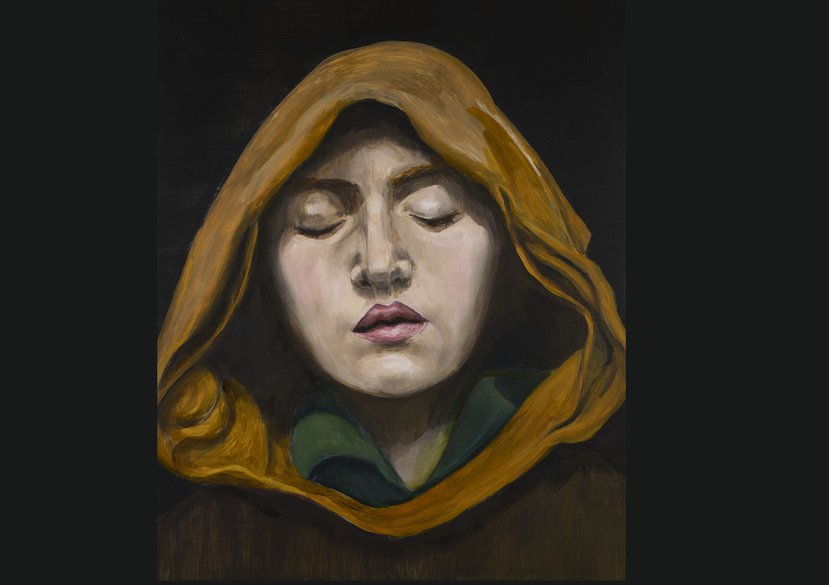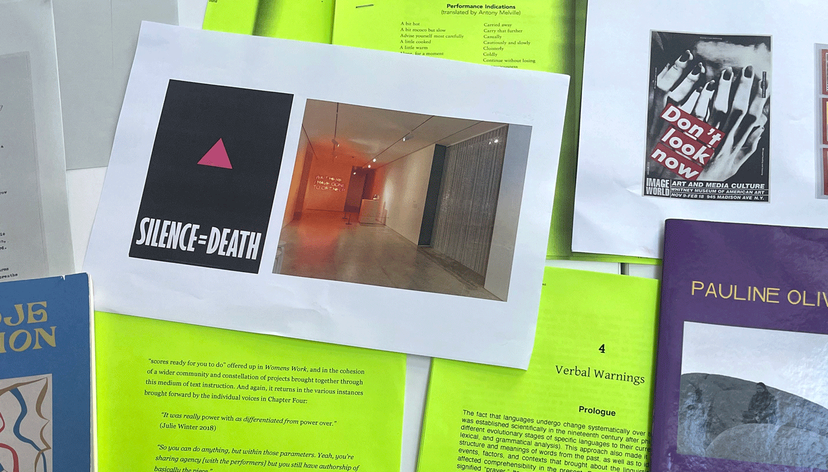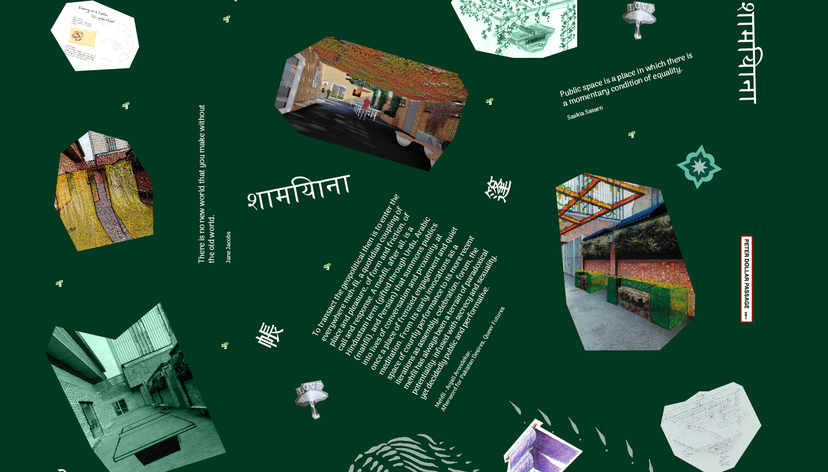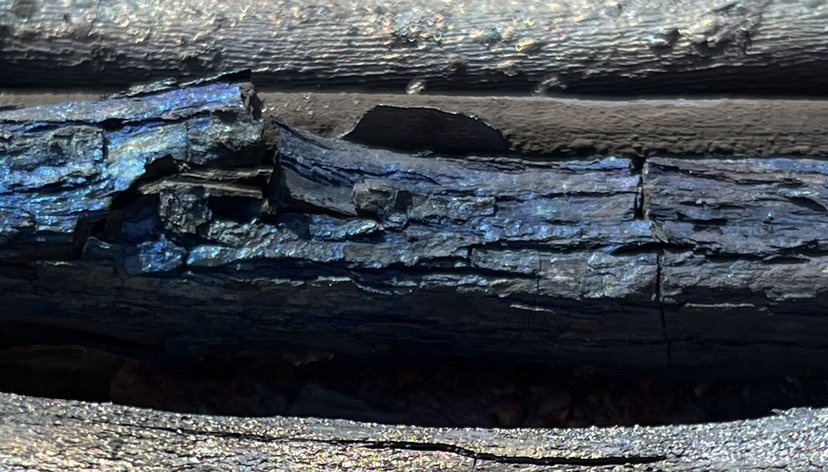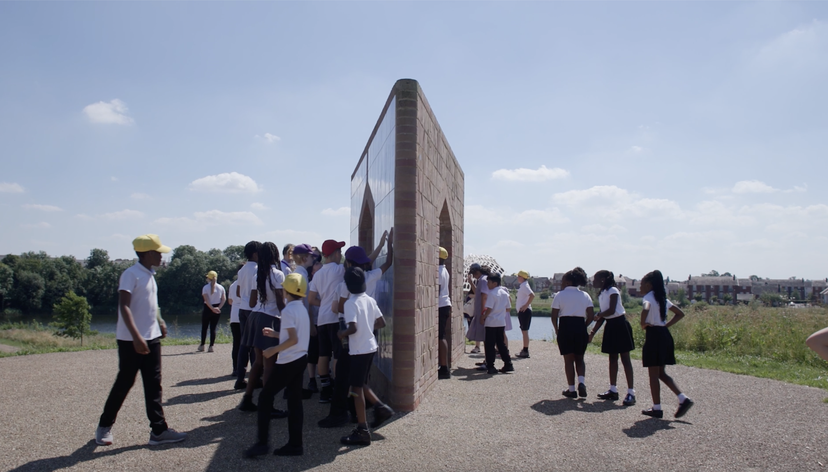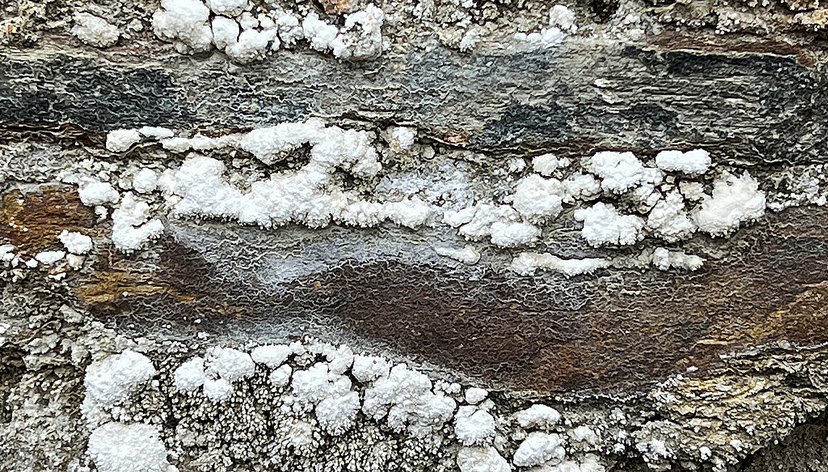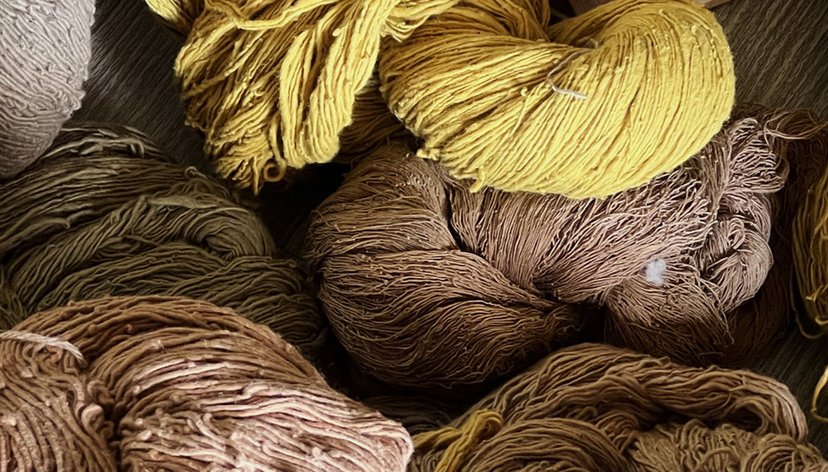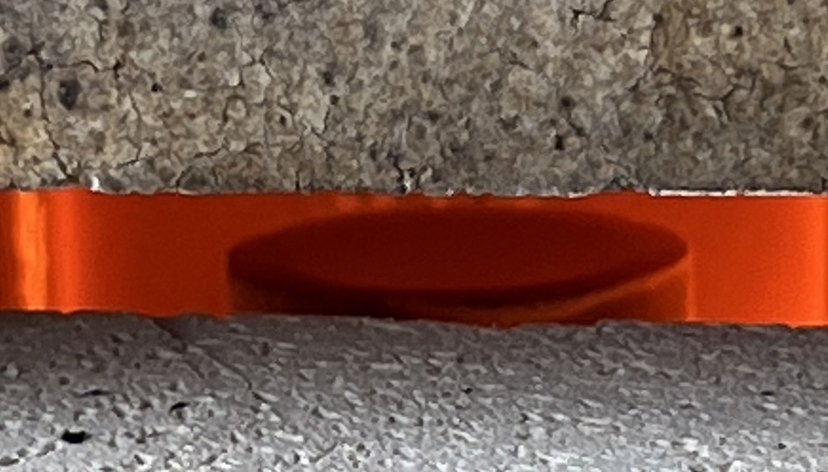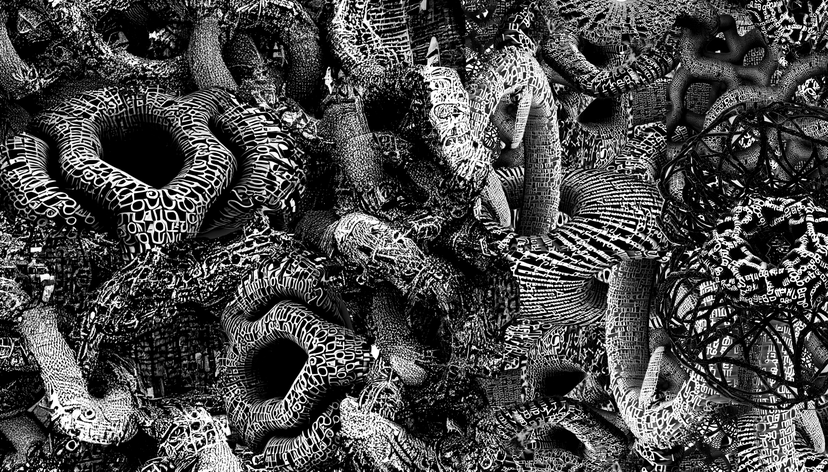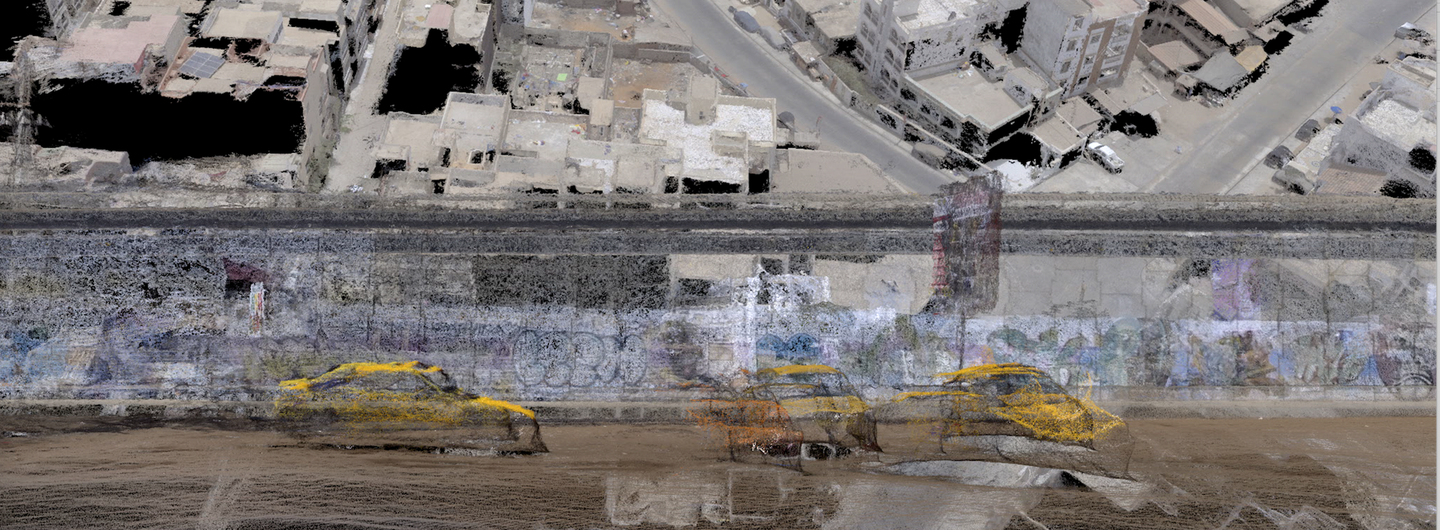
Data Loam is a multi-faceted arts-led approach, led in London by Professor Johnny Golding, which draws together artists, archivists, philosophers, writers, cyberneticists, physicists, composers and software engineers in order to address one of the most intractable problems facing our environment today: the massive proliferation of data and, with it, the accelerated impact of AI / human-machine coevolution.
Rejecting Cold War apocalyptic narratives pitting ‘man’ against ‘machine’ and rejecting also entrenched paradigms of indexicality, Data Loam refocused on the centrality of flow, diffraction, logics of sense, entanglement, undecidability. It takes as its points of departure three significant axes:
- the archive (what to archive and where – from the physical to the ephemeral);
- the accessible (how to widen and diversify participation at the point of knowledge exchange);
- the experimental (ensuring that the systems will intrinsically remain ‘open’ in the face of ever-increasing data and attempts at homogenisation)
In so doing, Data Loam has initiated a new chapter for the future of knowledge systems, and with it, new pedagogical and epistemological approaches to the arts and humanities. Seminal positions around ethics and the kind of society we may also wish to build, based on collective empathy, distributed intelligence and the courage to matter emerged during this exciting two-year international research project.
Key details
Gallery
More information
The project
With the massive and, at present untold, impact of AI, genetic engineering, digital knowledge systems and the exponential proliferation of information, we are in the midst of a global paradigm shift. Traditional systems of knowledge, science, ethics and aesthetics do not seem capable of managing this shift, let alone of providing tools to invent new ways of reimagining our future, now. One finds, instead, an acceleration of decision-making by computerised bots, buoyed by ecologies of mistrust and oddly childish alt-truth logics. All are seemingly underwritten by the perpetual indulgences of a technosphere poised at the ever-increasing detriment – and possible annihilation – of humanity and, indeed, of all things sentient, democratic and free.
Data Loam began by addressing one significant aspect of this global paradigm shift: the massive, exponential proliferation of data emerging from newly generated digital sources. It was clear that the old toolkits of indexicality – which could barely keep up with analogue records – were now wholly unfit for purpose. Coupled with this ‘information overload’ was the fact that categorising/ cataloguing not only required a certain instrumental, linear logic; it also meant that, irrespective of differing motivations, methods and sources of retrieval, all traditional data/information systems seemed to owe its retrieval, circulation and exchange to the curiosity, research and intelligence of the human. This, of course, is no longer the case, with information proliferating via AI / machine learning interfaces. Added to this was the not so distant echo of Cold War thinking where apocalyptic notions concerning machine generated knowledge were – and are still – proliferating and taking shape. Data Loam set out to initiate a different approach to the zeroes and ones of science and of life. Re-focussing on the convergence of contemporary art, philosophy and the wild sciences, Data Loam has begun to initiate a completely different imaginary, one that is not only possible but is already present as part of the everyday circulation of knowledge/ information/data.
Building from several international exhibitions, workshops, conferences and online exchanges, we developed generative algorithms that would thrive off of ever-proliferating data, with computing systems that would search using odd pattern structures, feedback loops, complexity, fractal philosophies. Perhaps most vital was to recognise the correlative method(s) of artists and the ability to ‘inhabit’ the materiality of logic systems, foregrounding the sensuous, the curious, and poetic as ‘sticky cohesions’. This alertness to the ‘what is to hand’ required also an intimacy with democratic theory, socio-cultural issues, questions of freedom, critical race issues, feminism, the ‘gay’ sciences, liberal arts, queer praxis, trans-materialities, non-representational ‘doing’ and ‘making’ in order to re-claim the ‘what is’ and to invent/imagine the ‘what can be’.
Data Loam’s three distinct strands (archive, accessibility, experimentation) operated at times parallel to the overall project and at times intersecting it. The three strands comprised crossed into the fields of (1) library information and sciences, with its emphasis on national library information cataloguing systems, including an emphasis on VR and other ‘ephemeral’ outputs particularly though not exclusively focussing on art collections and their experimental preservation; (2) cybernetics and its link to crypto-economic / bit-coin circulation, gaming, and design; and (3) the foregrounding of contemporary art practice-led methods with an emphasis on logics of sense, poetics, scanning, tonality, and the emergence of ‘new’ materialisms. Each strand required rigorous companionship with other disciplines and across several environments: notably the School’s Entanglement Research Group at the RCA, and postgraduate researchers at the Angewandte, University of the Applied Arts, Vienna. It included also: the Turing Institute, British National Library, London, and the national libraries at Humboldt and Berlin.
Working across Germany, Austria, the Netherlands, Canada and the UK, Data loam brought together hundreds of artists, philosophers, designers, library information and computing scientists, filmmakers, gallerists, cyberneticists, gamers, and physicists. The final event was an intensive and provocative international exhibition held at the Angewandte, with extremely positive media coverage.
Partners
Alan Turing Institute (London) – in the context of: The Living with Machines project. Principal Investigator Ruth Anherst, Professor of Literary History and Digital Humanities, QMUL. Cf: www.turing.ac.uk/research/research-projects/living-machines
British Library (London) – in the context of: The British Library Labs (BL Labs), an Andrew W. Mellon foundation and British Library funded initiative supporting the use of data in innovative ways. Project manager: Mahendra Hahey. Cf: www.bl.uk/projects/british-library-labs
German Federal Archive (Bundesarchiv) – cooperation with the federal film archive with Dr. Adelheid Heftberger, Head of Film Access at Das Bundesarchiv
Humboldt University Berlin – exchange research with Institut für Bibliotheks- und Informationswissenschaft, Prof. Vivien Petras, PhD, www.ibi.hu-berlin.de/de/ueber-uns/personen/petras
University of Innsbruck – exchange research with Mag. Eva Ramminger, Head of the University and State Library Tyrol. University of Innsbruck.
University of Vienna »Institut für Germanistik« – in context of »Campus Medius« campusmedius.net Mag. Dr. Dr. Simon Ganahl https://www.univie.ac.at/germanistik/simon-ganahl/
New York University (NYU) – as organizer of the Orphan Film Symposium, Dr Dan Streible, Associate Professor, www.filmmuseum.at/kinoprogramm/schiene?schienen_id=1551791568946
Connect Archives Initiative (CAI) – cooperation with this international research and digital film library development lab that is part of the EU SCENESOR project, co-ordination with Sebestyén Kodolányi
Activities
Final International Exhibition: Data Loam: Sometimes Hard, Usually Soft / Uber die Zukunft der Wissens-systeme und die Stofflichkeit von Information. AIL-Exchange 26/02/2019 – 08/03/2019. This exhibition was the main artistic event of the project featuring more than 20 international artists.
A wide range of project related activity as listed below, some of which were planned during the project, but rolled out after the project’s end time. (Please note: dates do not always refer to the exact day of a presentation, but indicate the beginning of a festival or event):
- 2019-09-05 – Festival: Ars Electronica 2019 (Linz)
- 2019-09-02 – Festival: BIO26| Common Knowledge - Central Exhibition (Ljubljana) 2019-06-22 – Exhibition: Understanding – Art & Research (MAK, Vienna)
- 2019-05-25 – Presentation: Fanzineist Vienna Art Book & Zine Fair
- 2019-02-26 – Exhibition: Data Loam. Sometimes Hard usually Soft [1] (AIL, Vienna) 2019-02-13 – Future Cryptoeconomics: The Genesis Stack
- 2019-01-29 – SoAH Research Presents: Entanglement The Opera (Artificial Intelligence, Hive Time, and the Future of Knowledge Systems) Entanglement Research Group, RCA. 20 researchers/artists, 250+ in attendance
- 2018-11-19 – Exhibition: Understanding – Art & Research (Singapore) 2018-04-12 – Exhibition: Understanding – Art & Research (Dunedin)
- 2018-01-25 – SoAH Research Presents: Marl: Sometimes Hard, usually Soft: A Carnival of Entanglement. Entanglement Research Group, RCA. 21research- artists, 200+ in attendance
- 2017-10-31 21 Performance: Future of Demonstration
- 2017-08-10 – Invited Artist, Installation Venice Biennale (SARN)
Research methods
Data Loam has initiated a new research method taking as a given expanding knowledge systems that can, depending on certain functional processes, self-organise (learn/make meaning) whilst simultaneously being able to circulate, plateau, dissolve or morph. This wildly odd dynamic – whose methodological predecessors include acceleration, entropy and flux – is closer to an ‘ecology’ of knowledge systems, rather than an ‘information highway’ or networked web (Latour). We re-branded this materially odd dynamic as a ‘mesh’ – partly in honour of Maya Deren’s iconic Meshes in the Afternoon (1943) and partly to emphasise the reciprocity of feedback loops, metastable equilibria and the asymmetry of emergence (Stengers, Mandelbrot, Barad). Developed in order to express different fields of knowledge systems in a variety of ‘multiversal’ coherences, ‘mesh’ becomes both a generator and a topography or holding pattern in which knowledge systems can be expressed/ proliferated and/or simultaneously plateaued as ‘sticky coherences’. This new method takes as its forebearers ‘undecidability’ (Gödel), ‘complexity’ (Prigogione/ Stengers, Moten), ‘diffraction and trans-materialities’ (Barad, Bennett, Muñoz), ‘logics of sense’ (Deleuze&Guattari, Wynter, Suterwalla), ‘gay science’ (Nietzsche). Although meshes often share similar properties and may as well overlap, some of them are more closely related than others – and as we have shown in the algorithm/search coding we developed. Meshes can be the flow (as in a crypto-economy) or can circulate in the flow (derivative), or slip onto a different plateau (as in the game ‘snakes and ladders’) to form different sets of equivalences, coherences and stories. To build the algorithm required a proliferation of data rather than the silo-ing or cataloguing of information into smaller and smaller indices. As a method, concentration was placed on patterns (colour, tone, speed) in order to articulate dimensionality, multiple-singularities, infinite data sets alongside regimes of circulation, distribution, and preservation.
This new methodological approach enables a fresh re-thinking of agency, away from ‘actor network theory’ towards a ‘pluralised something’ simultaneously porous, flexible, proliferating, shape-shifting, though sometimes also fixed, static, and seemingly immovable. In so doing, ‘mesh’ not only points to the possible interconnectedness of ‘everything’ (Morton), but also points to its ‘undecidability’ (Gödel). Or, as we put it in the book that has emerged from the Data Loam project, it names a structure (and process) of knowledge that is “sometimes hard, but usually soft” (Golding, Reinhart, Paganelli). No longer a metaphor, but a kind of materiality or even corporeality – a ‘radical matter’ both finite and yet open, fractal but without self-similarity.
Aims & objectives
Data Loam focussed on the problem of exponentially proliferating data in order to tackle questions of data ownership, data politics, speculative design of future data archaeology and novel approaches to so-called ‘post-factual’ data. At one level, our aim was to provide a different approach to the archive, open access, and experiment, and to do so by inviting partners from various scholarly and non-academic environments to share their concerns, thoughts and curiosities.
To that end, we were able to articulate a wholly different approach to method, one that is profoundly inter-disciplinary and requires art-based research at its foundation. At another level, we strove to develop a new approach to the currently stymied encyclopaedic rendering of information – typical of archival environments found in national libraries and, more recently, via, for example, Wikipedia. We developed a lexicographical prototype that is both algorithmic and scalable. It was show-cased in our final exhibition, Data Loam: Sometimes Hard, Usually Soft, (Angewandte Innovation Laboratory, 25 Feb-8 Mar 2019).
Contributions/impact
Data Loam has contributed to the advancement of arts-based research at both methodological and pedagogical levels. It has been able to produce a methodological approach that no longer silos knowledge but requires a radical proliferation of data whilst simultaneously emphasising cohesions and intensities rather than zero-sum binaric divides. It has done this, in part, by embedding our project in two different but highly regarded contemporary arts practice postgraduate programmes; namely: the PHD programme at the Royal College of Art (London) and the MA programme at The University of Applied Arts (Vienna). It was also rolled out at various conferences throughout Europe and North America with extremely positive reception. Importantly, also, Data Loam has had impact on non-academic environments, where we have rolled out various aspects of the project (via performances, exhibitions, gaming conferences, design symposia) often connecting those who have been in some way disenfranchised from an academic environment. This has included cultural performances at Transmediale (Berlin), Grey Areas Festival (San Francisco), and BIO-26 (Ljubljana).
Advancement of arts-based research
Data Loam has increased the central role of arts-based research for the humanities and sciences at both the methodological as well as practical level. This has been specifically advanced by foregrounding contemporary art practice within emergent knowledge systems, demonstrating both ‘how’ and ‘why’ art-based research, with its generative heterogeneic and sensuous expression, ‘makes’ (that is, produces, establishes, proliferates) logics of sense.In so doing, Data Loam has incorporated undecidability and incompleteness into the very fabric of technological change – a methodological and practical move that has helped to eclipse the usual apocalyptic narratives of technological foreboding.Moreover, and by fore-grounding contemporary art within, and as expressed by, emergent knowledge systems linked to new forms of circulation, distribution and exchange, Data Loam has provided a new method (the Mesh) for the mining, structuring and organising of wildly multiplying data.This elegantly simple and accessible move has already shown an impact at the University level, where there has been a significant number of PhDs taking up this emergent methodology regarding the radicality of matter and its coincident requirements for proliferation, multiplicity, and groundless logics of cohesion.
Contribution to a new research agenda
The Data Loam project addressed the need to articulate the profound generation and acceleration of information and its regimes of circulation, distribution, and preservation beyond the modern paradigm of indexicality. It took on the challenges created by the paradigm shift brought on new media, the technosphere, and profound advances in the sciences, but did so by place art-based research and practice at the core of the study. This enabled a refocussing, away from Cold War cybernetics and binaric zero-sum methods. In so doing, Data Loam has opened up and contributed to promising new research agendas, particularly in the field of new materialities and the method around which one can develop rigorous analytic tools without bringing to bear instrumental reason. We name this new field ‘radical matter’ and its method for engaging with it, the Mesh. It is an emergent field that takes as positive the development of distributed and artificial intelligence, crypto-economies and does so, in part, to rethink the archive (especially regarding national libraries) , experimental preservation (especially targeting museums and other cultural institutions), and governance (especially focussing on humanity, machines, as an ecosystem of democracy and the rule of law).
Data Loam has proposed and then has begun to detail a different, more open, sensuous approach to ‘Big Data’, its exponential proliferation and the impact of new technologies both artificial and distributive. What we realised was that rather than ‘reduce’ information into smaller and smaller indexical patterns, it was crucial to develop an algorithm that would thrive off of ever-proliferating data and, in so doing, re-articulate patterns as both asymmetrical repetitions and non-continuous entanglements. Rather than hindering knowledge, the infinite proliferation of information now became critical to the establishment, retrieval and circulation of new knowledge. It is one that has been diffracted along three main sets of enquiry: archiving: how to search tag and organize data; accessibility: how data becomes self-organized and can produce self-governance beyond data systems; and experimentation: how correlations create matter and generate entanglement as environments or aesthetico-political ecosystems with heterogeneous and local dimensions. This has had the profound, and somewhat unexpected outcome of initiating a new pedagogical and methodological knowledge system for the arts and humanities. We have called this emergence sometimes ‘hard’ (but usually ‘soft’, ‘ephemeral’ and ‘immaterial) – a flexible knowledge system that expresses, coheres and sometimes forms the basis for which we as a community of scholars, artists, and citizens can begin to navigate this new universe, both politically as well as aesthetically. This was best approached by foregrounding the role of the artist and art-led research.
Recognition
https://www.derstandard.at/story/2000098627288/der-stoff-aus-dem-das-wissen-ist
https://diepresse.com/home/premium/5584328/Abschied-nehmen-von-der-Eindeutigkeit
Awarded book contract with De Gruyter, Data Loam: Sometimes Hard, Usually Soft (the future of knowledge systems), Johnny Golding, Martin Reinhart and Mattia Paganelli (Eds).
Ask a question
Get in touch to find out about School of Arts & Humanities research projects.
SoAH@rca.ac.uk

![Anna Nazo [artist]. Devia, 2019 performance as part of ArtFutura 2019, Iklectik Art Lab, London, 1 Dec 2019. Image credit Pau Ros. Still in Data Loam (2020).](https://rca-media2.rca.ac.uk/images/image.original.2e16d0ba.fill-900x415.png)
